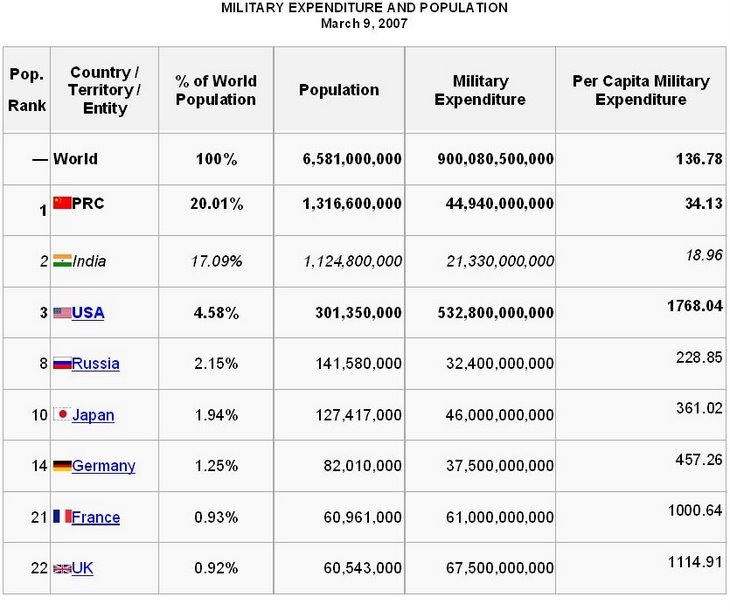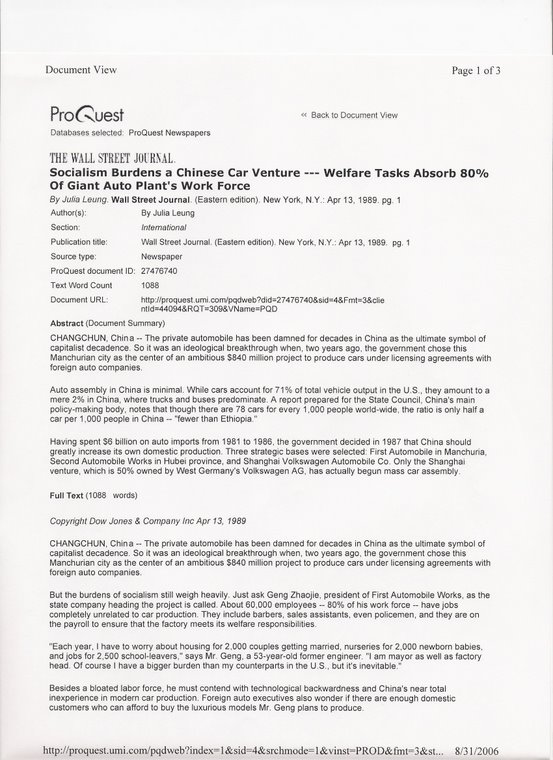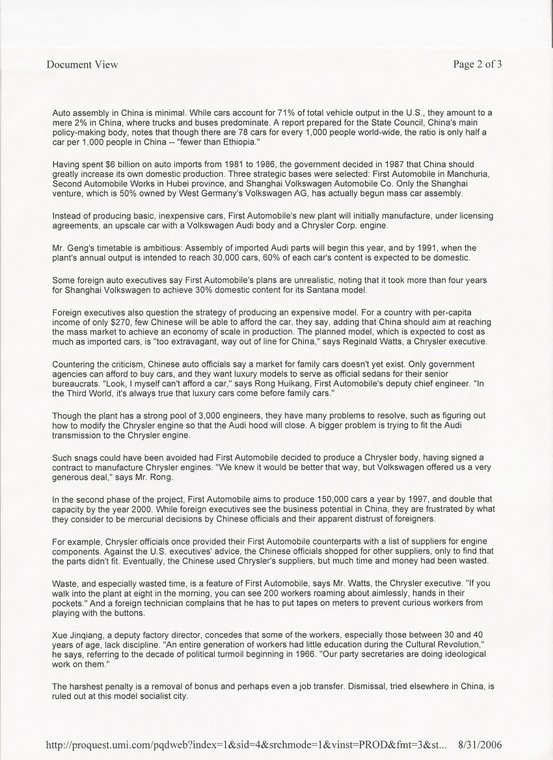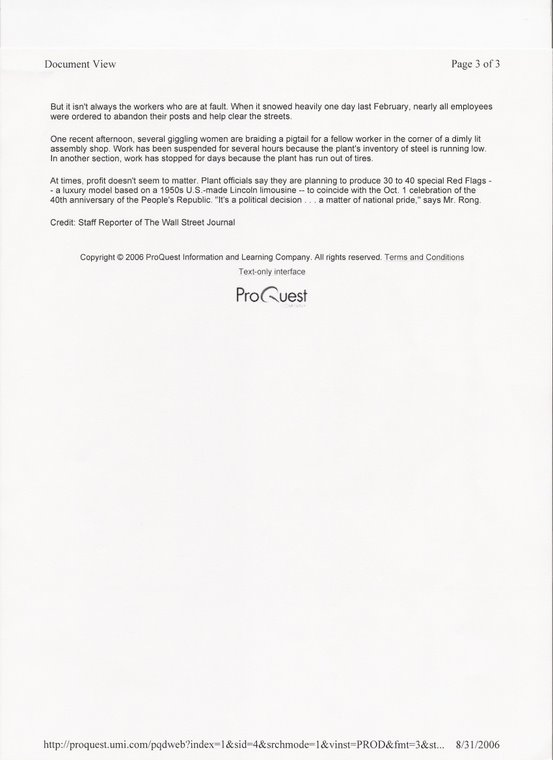WHEN OUTSOURCING FAILS
One in Five German Firms Leaving China
China lost its status as the world's cheapest country for manufacturing some time ago. The momentum now seems to be shifting away from outsourcing to the Far East, with one in five Germany companies pulling production out of the country. Chinese workers, they say, are getting too expensive.
Despite massive training efforts, German premium stuffed animal-maker Steiff was unable to yield the quality it demanded from its Chinese plant.
Citing fast-climbing labor costs and pesky production quality problems, a growing number of German companies are doing an about face and pulling their manufacturing operations out of China. Some are searching for countries with lower wages (more...) while others are returning production to Germany.
The Association of German Engineers (VDI) estimates that one in five of the approximately 1,600 German companies with presences in China is planning to pull out of the market, the Tagesspiegel am Sonntag newspaper reported. "Many, many firms are naïve when they enter into the Chinese market and don't even think about the fact that wages are increasing there," VDI spokesman Sven Renkel told the newspaper.
Rising energy costs, stricter environmental rules, the elimination of many tax incentives, a dearth of skilled workers and the increasing strength of the yuan against the dollar have all pushed production costs up in China. In addition, the country's 8-percent inflation rate has also driven up wages in the past year by as much as 20 percent, Harald Kayer, a partner at the consulting firm PricewaterhouseCoopers (PWC), told the paper. For some companies and industries, China is already getting to be too expensive. They're now looking to other lower-wage countries, like Bangladesh, India or Kazakhstan, where production is cheaper, or they're bringing manufacturing back to Germany, he said.
Chinese companies, too, are increasingly outsourcing production abroad, Eddy Henning, the head of corporate banking at Deutsche Bank in Beijing, told the newspaper. "Someone who just wants to produce T-shirts is more likely to go to Vietnam or Africa," he said. For investors from Europe, Romania and Bulgaria are also competitive with China when it comes to production.
According to Hans Röhm of the consulting firm Deloitte, the companies that are most likely to return to Germany are those that outsourced production out of cost considerations -- including the consumer goods industry and textiles, which both produce in mass quantities.
But manufacturers of high-quality goods are also looking at China with a more critical eye -- at least in the longterm. A dip in quality for these companies could damage their reputation. "That's why we're advising a lot of our customers to consider production in Germany," Röhm told the paper.
Four years ago, Steiff, a world-famous German company that makes high-quality teddy bears, moved part of its production to China. In early July, though, the company announced it would return all manufacturing to Germany.
"For premium products, China is just incalculable," Steiff CEO Martin Frenchen told the Stuttgarter Nachrichten newspaper in July. He said it took six months to train workers to produce the teddy bears' complicated stitching and to meet the company's standards for quality. "By then you might have already lost them to an automobile factory next door that pays more," he added. Despite the company's arduous efforts to produce high quality products in China, Steiff executives weren't satisfied with the end result, Frechen said.
The company also complained of the length of delivery times. Sometimes the ships carrying the company's stuffed animals would take up to three months to get to Germany. For sales successes like the company's stuffed Knut polar bear, of which 80,000 were sold, that waiting period was just too long.
Following a major scandal last year in which researchers discovered that some toys made in China were coated in toxic lead paint, the public's faith in production in the country was shaken, and Steiff decided to end its production in Asia.
Commentary:
This headline in Spiegel says it all:
Vietnam is the New China: Globalization's Victors Hunt for the Next Low-Wage Country (05/14/2008)
Through it all, the working class creates the wealth and the capitalists steal this wealth.
The question remains: What is to be done?
With one in five German firms now leaving China for cheaper labor and better quality production standards what will happen as firms from other countries follow in quest of cheaper labor markets?
Is China really on the path of "harmonious development?" Or, is this "harmonious development" just a sop--- or mere words and platitudes in the form concessions--- thrown out to pacify billions of working class people and the peasantry who are growing tired of living in poverty?
The creation of millions of capitalists has been tolerated by the capitalist moles who have tunneled their way into the Communist Party of China; these capitalist moles are out to restore capitalism in China under the guise of harmonious development.
These capitalist moles who have infiltrated the Communist Party of China are seeking to buy time to finish consolidating the return of capitalism to full power by suggesting that working people will only be able to look forward to reforms twenty to one-hundred years from now.
The facts simply do not correspond to reality in China. China has in fact become a tremendously wealthy nation... in spite of claims of being on the road to "harmonious development" the only ones living "harmonious" lives are the new Chinese capitalists.
No working class Communist Party would tolerate this tremendous accumulation by capitalists who flaunt their wealth in front of the poor and then tell workers and peasants they will have to wait twenty to one-hundred years to have all of this benefit their lives.
At a bare minimum, if there was any sincerity at all about working toward "harmonious development," all previously cut universal social programs would have been restored by now in China. For sure there is enough wealth in the hands of Chinese and foreign capitalists to finance socialized health care and free education through university along with a very substantial housing program amounting to more than the "dormitory" housing for which working people have to pay exorbitant rents.
Going back-wards for another twenty to one-hundred years as capitalists amass ever greater profits through the suffering of the working class and rural peasantry is not my idea of what socialism is about.
Already, the very capitalists who have amassed very significant wealth in China are doing just what capitalists in any other countries have done... they are taking this wealth and running to cheap labor markets where they can make even more. This is not "harmonious development" no matter what anyone claims.
Working people have a right to ask if the wealth they have created amounts to enough for them to live better lives.
Commentary by Alan L. Maki












No comments:
Post a Comment